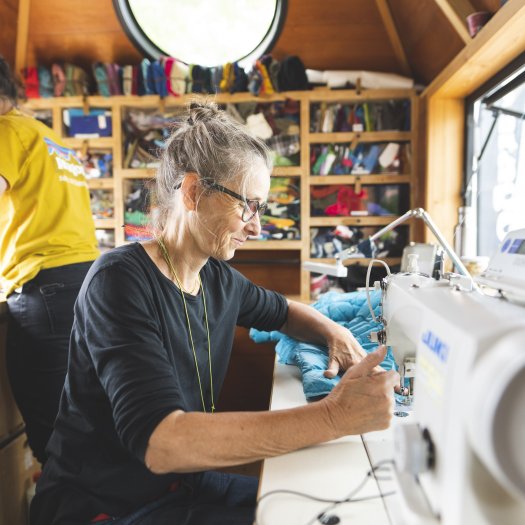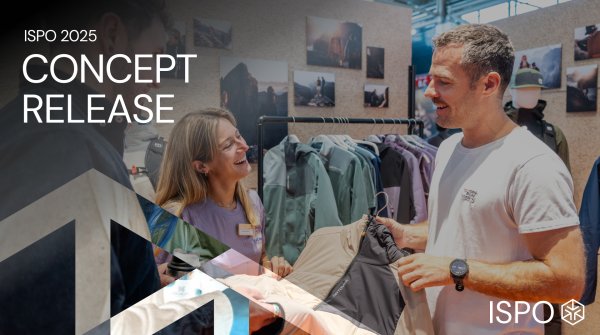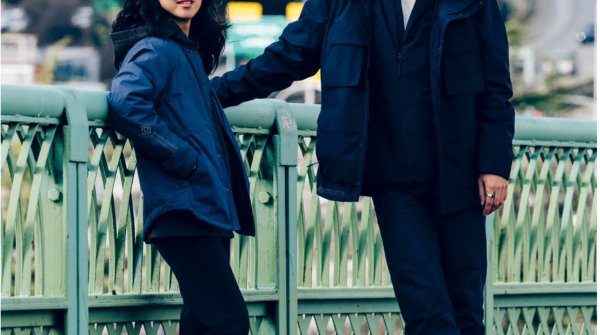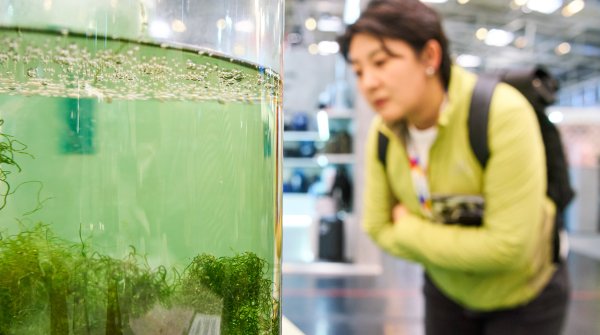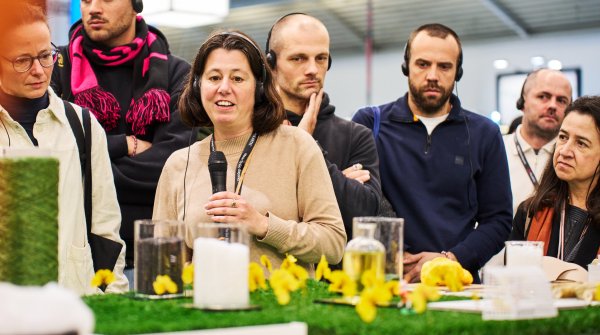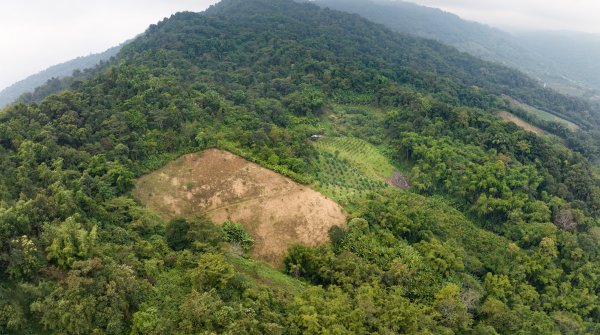Many outdoor companies are already investing in renewable energy sources such as photovoltaic systems, wind turbines or efficient technologies. The next step will be to make the entire production process low-water, energy-saving and environmentally friendly. This is the only way to reduce the ecological footprint. Many manufacturers, especially in the field of functional textiles, have optimized their production techniques and worked on innovative manufacturing processes - for example, special weaving techniques that shorten the production process. Textile manufacturer Ecoduo, for example, has developed an innovative weaving technique in which fabrics are woven vertically to shorten the times required for setting and lamination. The advantage is that the fabric is manufactured in one piece and no adhesive is required. As a result, it only needs to be fixed three times without adhesive, reducing energy consumption by over 50%. At the ISPO Textrends Award, this aspect was also taken into account in the jury's decision: It awarded one of the coveted ISPO Textrends cups to Ecoduo.
The demand for sustainable clothing and accessories from consumers is increasing, and they are also willing to dig deeper into their pockets for it. But recognizing whether a piece of equipment is truly sustainable is challenging. There are now countless labels whose meaning is not always immediately clear. Rab and Lowe Alpine have therefore developed a new label that bundles a lot of comprehensible information. It is similar to the nutritional information on food and is intended to provide more transparency.
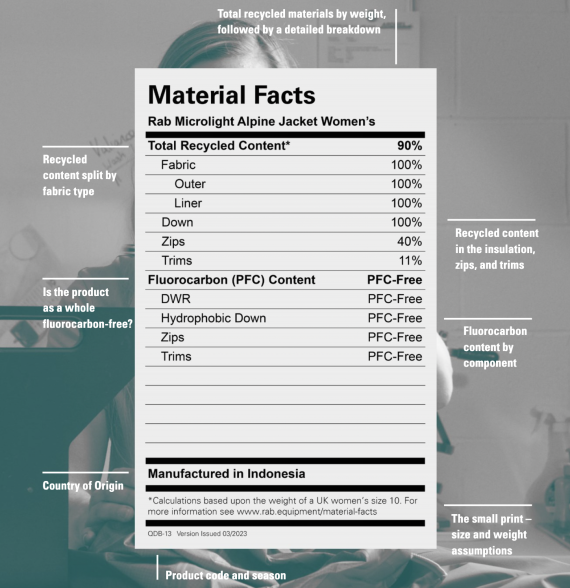
The aim is to enable buyers to make a quick and informed purchase decision. The label contains the most important sustainability features of the product. These are divided into different components and presented as concise facts in an easily understandable way. In addition to material details, they provide information about the place and method of production. As consumer demands increase, the "Material Facts Tables" will appear on the product pages of Rab and Lowe Alpine as early as the end of 2023.
The outdoor industry is increasingly embracing the principles of the circular economy. Waste is thus minimized and the value of resources maximized. Companies are increasingly developing durable and repairable products, promoting recycling and upcycling, or introducing take-back programs to ensure proper disposal at the end of a product's life. But circular economy in the outdoor and sports industry starts with product design: the focus here is on durable, long-lasting products that can withstand frequent use. This requires high-quality materials, reinforced seams and robust construction techniques. In addition, products must be designed in such a way that the materials used can be easily separated to simplify recycling.
ISPO Textrends winner NIL Textile has developed the world's first fully recyclable system. Customers can recycle worn-out items via the NIL Circular System customers can return worn-out items via the NIL Circular System and, with the help of a molecular recycling technology, they are recycled without any loss of quality. The recycled material is used again in new production.
While repairing clothes is often less expensive for consumers than buying new items, it has been difficult for companies to generate a profit from the service.. But: Repairable clothing allows consumers* to repair minor damage or wear and tear themselves, extending the life of their garment. As a result, fewer garments need to be replaced, which prevents them from ending up in landfills. Video instructions for do-it-yourself repairs can often be found on the brands' homepages. In addition, there is often an enormous repertoire of care and repair tips for products. Many companies, including Arc'teryx, Patagonia and Vaude, also offer to send in broken products for repair.
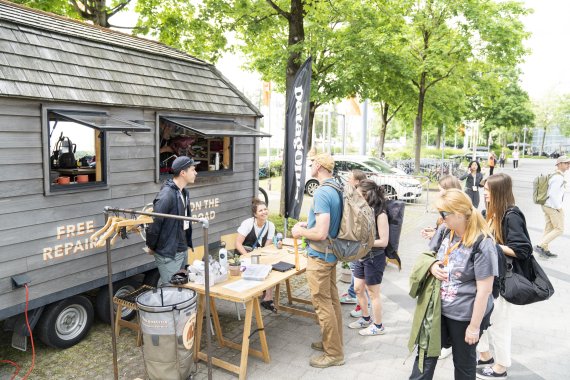
Sustainability in the outdoor industry goes beyond product design and production. Many companies are additionally actively involved in nature conservation and are committed to the preservation of natural areas. This includes supporting and working with environmental organizations, advocating for sustainable land and water management, and promoting environmental education and awareness among their customers. The footwear and outdoor brand KEEN, for example, has launched the "KEEN Effect" program to support organizations and projects that promote environmental protection, responsible outdoor activities and social justice. They provide grants and resources to organizations that align with their values.
- ISPO awards
- Mountain sports
- Bike
- Design
- Retail
- Fitness
- Health
- ISPO Job Market
- ISPO Munich
- ISPO Shanghai
- Running
- Brands
- Sustainability
- Olympia
- OutDoor
- Promotion
- Sports Business
- ISPO Textrends
- Triathlon
- Water sports
- Winter sports
- eSports
- SportsTech
- OutDoor by ISPO
- Heroes
- Transformation
- Sport Fashion
- Urban Culture
- Challenges of a CEO
- Trade fairs
- Sports
- Find the Balance
- Product reviews
- Newsletter Exclusive Area
- Magazine
